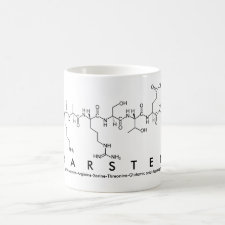
Authors: Attieh MD, Zhao Y, Elkak A, Falcimaigne-Cordin A, Haupt K
Article Title: Enzyme-Initiated Free-Radical Polymerization of Molecularly Imprinted Polymer Nanogels on a Solid Phase with an Immobilized Radical Source.
Publication date: 2017
Journal: Angewandte Chemie International Edition
Volume: 56
Issue: (12)
Page numbers: 3339-3343.
DOI: 10.1002/anie.201612667
Abstract: An enzyme-mediated synthetic approach is described for the preparation of molecularly imprinted polymer nanoparticles (MIP-NPs) in aqueous media. Horseradish peroxidase (HRP) was used to initiate the polymerization of methacrylate or vinyl monomers and cross-linkers by catalyzing the generation of free radicals. To prevent entrapment of the enzyme in the cross-linked polymer, and to enable it to be reused, HRP was immobilized on a solid support. MIPs based on 4-vinylpyridine and 1,4-bis(acryloyl)piperazine for the recognition of 2,4-dichlorophenoxyacetic acid (2,4-D) and salicylic acid were synthesized in an aqueous medium. MIPs for the protein trypsin were also synthesized. MIP nanoparticles with sizes between 50 and 300 nm were obtained with good binding properties, a good imprinting effect, and high selectivity for the target molecule. The reusability of immobilized HRP for MIP synthesis was shown for several batches
Template and target information: 2,4-dichlorophenoxyacetic acid, 2,4-D
Author keywords: enzyme catalysis, free-radical polymerization, Molecularly imprinted polymers, nanoparticles, oxidoreductase



Join the Society for Molecular Imprinting

New items RSS feed
Sign-up for e-mail updates:
Choose between receiving an occasional newsletter or more frequent e-mail alerts.
Click here to go to the sign-up page.
Is your name elemental or peptidic? Enter your name and find out by clicking either of the buttons below!
Other products you may like:
 MIPdatabase
MIPdatabase









